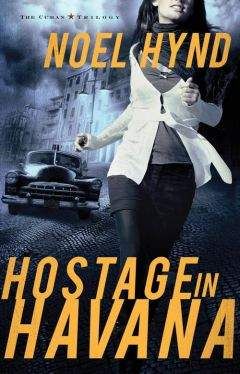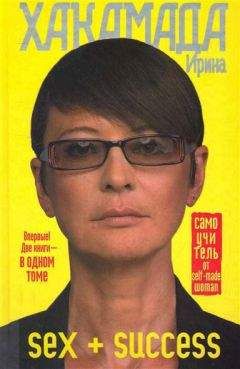Noel Hynd - Hostage in Havana
На сайте mybooks.club вы можете бесплатно читать книги онлайн без регистрации, включая Noel Hynd - Hostage in Havana. Жанр: Полицейский детектив издательство неизвестно,. Доступна полная версия книги с кратким содержанием для предварительного ознакомления, аннотацией (предисловием), рецензиями от других читателей и их экспертным мнением.
Кроме того, на сайте mybooks.club вы найдете множество новинок, которые стоит прочитать.

Noel Hynd - Hostage in Havana краткое содержание
Hostage in Havana читать онлайн бесплатно
Violette said nothing. He only twitched and stared.
Juanita worked on the handcuffs and undid them. Behind Alex, the door opened and closed again. It was Major Mejias. He had taken his cargo down to the end of the pier where it waited. Alex had to fight back her emotions. The loneliness in solitary. The suicidal thoughts. The fear. The torment. She turned toward the major.
“Sorry,” he said, placing a hand on her shoulder. “I had to be rough. We had listeners. All the way. In prison.”
“Seville,” she said.
“Figaro,” he said with a nod and an awkward tip of his cap. “This is my wife,” he said, turning to Juanita, who now smiled. “Those boxes out there are for your employers. Everything I could copy for five years, plus a lot that I didn’t have time to copy. There are papers, discs, flash drives. Defense records, police, militia security. A few personal items as well.”
“Poison. Poison,” Violette said, making no more sense than ever. He moved over to the window and peered out.
“The CIA is bringing us to Miami,” said Major Mejias. “My wife is coming with me.”
“A seaplane’s coming in,” Guarneri said. “Should be here any moment.”
“I was told you’d already gone,” Alex said. “Along with Violette.”
“Without you?” Guarneri asked. “Don’t believe everything you hear. You should know that.”
“I should have known that, yes,” she said.
“Airplane,” said Violette. “Airplane, airplane, airplane.”
They all went to the window.
“That’s our exit,” said Guarneri.
Alex watched the Cessna drop low on its approach. The plane hit the water, kicked up a wake, and began to taxi toward the pier. It was an old craft, propeller driven, but had its own beauty.
“If the plane doesn’t lift off, none of us are going,” Alex said.
“I’m going. I’m going. I’m going,” Violette said. “Back to the U.S. of A.”
She looked at him and then looked at Major Mejias. There was no question which of them was the bigger prize. And things started to come into focus.
“Let’s get to the pier,” Guarneri said. Then they all froze. From somewhere there was the sound of a loud bang. Then several more. Someone was trying to crash through the outside gates.
“Army!” said Major Mejias. “Or police!”
“We need to move,” Paul said.
Perez waited. He perched his rifle in the second-story window.
He had a clear line of sight to the small house with the Brazilian flag. He could see the commotion at the other side of the wall too, army trucks unloading soldiers, probably from Cienfuegos. But they weren’t his concern. He was used to shooting under pressure.
He lowered his eye to rifle’s sight. The rear door of the building opened, and a limping man with a hickory cane emerged. Then a woman in a police uniform came out. He waited. Then the woman emerged whom he had missed in New York. He grinned. That tiny miss a few weeks back had created all these complications. The woman, Alex LaDuca, was followed by a man. They were moving quickly, all of them, everyone except the crazy-looking old guy with the cane. Alex and the younger man were holding hands. Well, so be it. Let the lovebirds have their moment.
Perez moved his rifle onto his intended target. The right side of the victim’s head was beneath the red dot of his laser. This was such an easy shot that he almost felt bad. Just as the first of the escapees reached the pier, and he prepared to pull the trigger, an explosion erupted at the gate. The army had blown the door inward. A wave of smoke rolled across the courtyard. Still, it wasn’t enough to distract Perez. His future with his family was at stake, and these CIA guys he had been dealing with would have to make good on their promise to get him and Nicoleta and the girls back together.
He swung the rifle around, put the red beam on the head of his victim, and pulled the trigger. There was nasty recoil to the rifle but a tremendous satisfaction. He knew a single-shot kill when he saw one, a human head blowing apart, a crimson mist of blood and brains exploding from the bullet’s impact. And that’s what he saw.
Alex never heard the rifle shot. But she heard the crack of the bullet on Roland Violette’s skull. She heard a strange guttural sound escape his lungs and mouth, and almost instantaneously, she heard his body hit the ground. His attache case landed nearby.
She pulled her hand free of Paul’s, turned, and stared. And at the same time, she could hear soldiers pushing through the wreckage of the iron gate.
For too long a moment, she stopped and stared at the fallen man. His last wish had been to return to the country he had disdained and be buried on American soil. But old grudges died hard. It was never meant to happen.
The noise of advancing soldiers grew louder.
“Alex! Alex!” Paul was back at her side, barking at her. “Come on! Now or never! We have to get out of here!”
He tried to pull her toward the aircraft, but she balked. She grabbed the attache case from the ground. There was a splattering of blood on it. Then she turned and ran toward the pier.
Major Mejias and his wife were already in the airplane. The propellers started up again, and the door was open. Alex and Paul reached the end of the pier, and the soldiers opened fire. Paul turned and brazenly drew a pistol. He fired wildly at the oncoming soldiers, but, as on the day of their arrival, his volleys only caused them to scatter.
Alex reached the aircraft and darted onto it, crouching into a far seat in the second row. The aircraft started to move from the pier, the door still open and Paul outside. Alex realized that without help, as the plane accelerated, he was in danger of being left behind. Alex bolted to the door and extended a hand as Paul turned toward the plane. A bullet punched the body of the plane and then a second. A third shot hit a few inches above her head. Paul jumped forward and Alex pulled. His foot slipped but he grabbed part of the door frame. She pulled him on board. The aircraft turned rapidly in the water and the passenger door closed. Then a bullet blew out a side window.
The pilot threw the throttle forward, and the plane fishtailed on the water. Facing away from the shore, it was a harder target to hit. But shots ripped past it and into the water. All four passengers kept their heads down. The navigator sat low in his seat, as did the pilot. The plane gained momentum as the first rays of sun started to streak across the sea.
They lifted off, and the Cessna rose above the water. The aircraft was a thousand meters from shore, then twelve hundred. A final shot pinged against its fuselage but didn’t penetrate. Then they were in the sky, getting as far from the island as possible before the pilot banked and turned to the southeast.
A palpable sense of relief flooded the passengers, tempered by the parting sight of Roland Violette lying dead on a Cuban beach. For several minutes no one spoke, aside from the pilot who checked in with air traffic controllers in the Cayman Islands. Alex muttered a silent prayer of thanks.
Finally, Paul broke the silence. He turned to Alex. “Communists,” he said. “Can’t do anything right. Can’t run a captive country and can’t even shoot straight.”
SIXTY-THREE
For the next week, Alex lived in limbo.
In New York, her employers insisted that she go for a physical at New York Hospital, where they had all the proper doctors lined up. Since she knew this was both protocol and a wise health decision anyway, she didn’t protest. So she spent her first three days back in the U.S. in a private hospital.
It could have been worse. She managed to sleep a good deal. Friends came by to see her, including Ben, with whom she made up. She entrusted him with the two letters given to her by the young boy Guillermo and asked him to mail them for her. He said he would.
When she got out of the hospital, on her fourth day back, she took a taxi to her home on West 61st Street. The living room window was still boarded up. The place reminded her of pictures she has seen of Berlin during World War II. The building manager told her that repairs could be made just as soon as they received signed permission.
She signed the form and packed up a few things, called her old mentor, Joseph Collins, and arranged to stay at his son’s unused apartment on East 21st Street.
Then there was her first trip back to Fin Cen. She did this in the evening when most of the personnel were out. It would have been too much to see everyone at once, and there were parts of her trip that she simply didn’t feel like discussing. She spent ninety minutes with her boss, Andrew De Salvo, over Chinese takeout and cold beer. She was put back in charge of Operation Parajo and learned the two most salient details of where Operation Parajo stood:
Numero uno: the gunman who had shot at her had been taken into custody by the CIA and “turned into an asset,” whatever that meant these days. He was, in short, “neutralized.” Then again, other enemies would always be out there.
Numero dos: The Dosis were still out there somewhere, having slipped thought the holes in the worldwide dragnet. Alex’s indictments and the arrests she had ordered had brought much of the Dosi worldwide enterprise to its knees and just about ruined it financially. But the snake still had its head.
“So where are we now?” Alex asked. “Back at the beginning?”
“No, we’re entering an endgame,” Andrew De Salvo said. “These things take years, not months. And that’s if we’re lucky. You did a whale of a job once again. That’s what they tell me from D.C. Came back with an interesting haul from the Pearl of the Antilles. They want to see you in Washington, by the way. Things are under control here. You can take another ten days for R amp;R if you want.”
“I want.”
“Washington actually means Langley,” he added.
“Doesn’t it usually?”
Two afternoons later, Alex found herself in the familiar office in the west wing of the CIA headquarters, sitting in front of Maurice Fajardie, who was unraveling samples from the mishmash of notes, charts, and printouts that had traveled north with her on the Cessna. The Cubans hadn’t quite entered the twenty-first century of intelligence compiling, so much of the information had a retro look – plenty of colors. Agency analysts were now trying to determine what red and green and orange pages meant. But the preliminary feedback from the intelligence analysts was highly positive regarding the material from both Major Mejias and the late Roland Violette.
“So it was worth my visit?” she asked.
“Very much so,” Fajardie said. “A-list intelligence on a B-list enemy. Not akin to a top intelligence coup against our Muzzie adversaries, for example, but certainly when a hostile regime is ninety miles from our doorstep, an up-to-date snapshot is of great value. Most of Violette’s material was dated and harks back to the sixties, seventies, and eighties. Think bell-bottoms to big hair. But it puts some old cases in order, lets us know who’s still living in Cuba, and fleshes out some other cases. As for the stuff from Major Mejias, we’ve only had a week to look at that, but it’s excellent stuff. Here, let me show you. Look at some of the initial conclusions.”
Fajardie handed Alex a series of documents. Alex riffled through. She read a few of the conclusions that American intelligence analysts had come to:… Cuba remains in the midst of its worst economic and social crisis since the fall of the Soviet Union …… The Cuban people, frustrated with massive unemployment and food shortages, could revolt at any time …… Raul Castro drinks very heavily since the death of his wife. He is more in touch with the people than his brother was, but he would not hesitate to use the military to repress threats to the Communist regime … On the other hand, the overtures of reconciliation to the United States that he has made through the Spanish ambassador to Washington are sincere …… More than 90 percent of all Cuban diplomats assigned to New York and Washington are engaged in espionage …
She looked up. “What about Violette?” Alex asked. “I assume he genuinely wanted to return. Am I correct?”
“You are,” he said. “But old antagonisms die hard around this agency. We had agents butchered in Angola, Colombia, Spain, Cuba, and Venezuela due to this man. Do you think that anyone here was ready to see him return and receive free health care at a federal prison hospital? Do you think anyone had any real affection for seeing that vacuous, deranged, sneering face returning in pseudo-triumph?”
“I doubted it all along,” Alex said. “I posed that question to him myself, but he was too far gone to comprehend.”
“When the possibility of reeling in ‘Figaro’ arose, the possibility of a trade-off took shape. So if someone such as yourself was going to be kind enough to go to the island, scoop up Violette’s final bag of goodies, and return with an even greater additional haul – well then! Stuff began to arrange itself behind the scenes. The Agency beat the FBI to Manuel Perez and made its own deal. Pretty good one, don’t you think? We turned him back to our side and had him take care of some business in Cuba for us.”
“Hitting Violette, you mean?”
“That was part of it.”
“What was the other part?”
“Have you heard the name Julio Garcia recently?”
“Too many times, yes. I believe I should talk to Paul Guarneri about that.”
“I believe you should,” Fajardie said. “Have a nice chat.”
“I have one other stop first,” she said. “Some final points of interest. I’m going to take my queries directly to the source.”
“Be my guest,” said Fajardie.
That afternoon, Alex drove back across the Key Bridge into Washington, where she located a Cuban restaurant called Los Matamoros on a tiny side street in Georgetown. She spotted ex-Major Mejias and Juanita, his wife, at a rear booth.
The emigre couple faced front. Their backs were to the rear wall. They looked as if they were settling into their new life but knew they still had enemies. Mejias’s eyes worked the room as he rose to greet her. A slap of a new cologne assaulted Alex during a token embrace. They sat. In the background, someone had fed the jukebox. Shakira was rocking the place. Nice and loud, great for talking off the record.
For the next ninety minutes, over plates of spicy Montuna chicken and glasses of cold drinks, Senora Mejias kept quiet as her husband told his own story to Alex, who slipped easily into Spanish for the encounter.
Mejias had been five years old when Fidel Castro marched into Havana in 1959, he said. In his youth, he became fervently pro-Castro.
“I believed socialism would eradicate the problems of the Cuban people,” he said. “But after the fall of communism in Eastern Europe and the crash of the Soviet Union in 1991, I had my doubts about socialism. Because of my profession, and my position in state security, I was able to travel. I could see that the socialist system had not functioned in my country or any country that I had seen.”
Похожие книги на "Hostage in Havana", Noel Hynd
Noel Hynd читать все книги автора по порядку
Noel Hynd - все книги автора в одном месте читать по порядку полные версии на сайте онлайн библиотеки mybooks.club.




